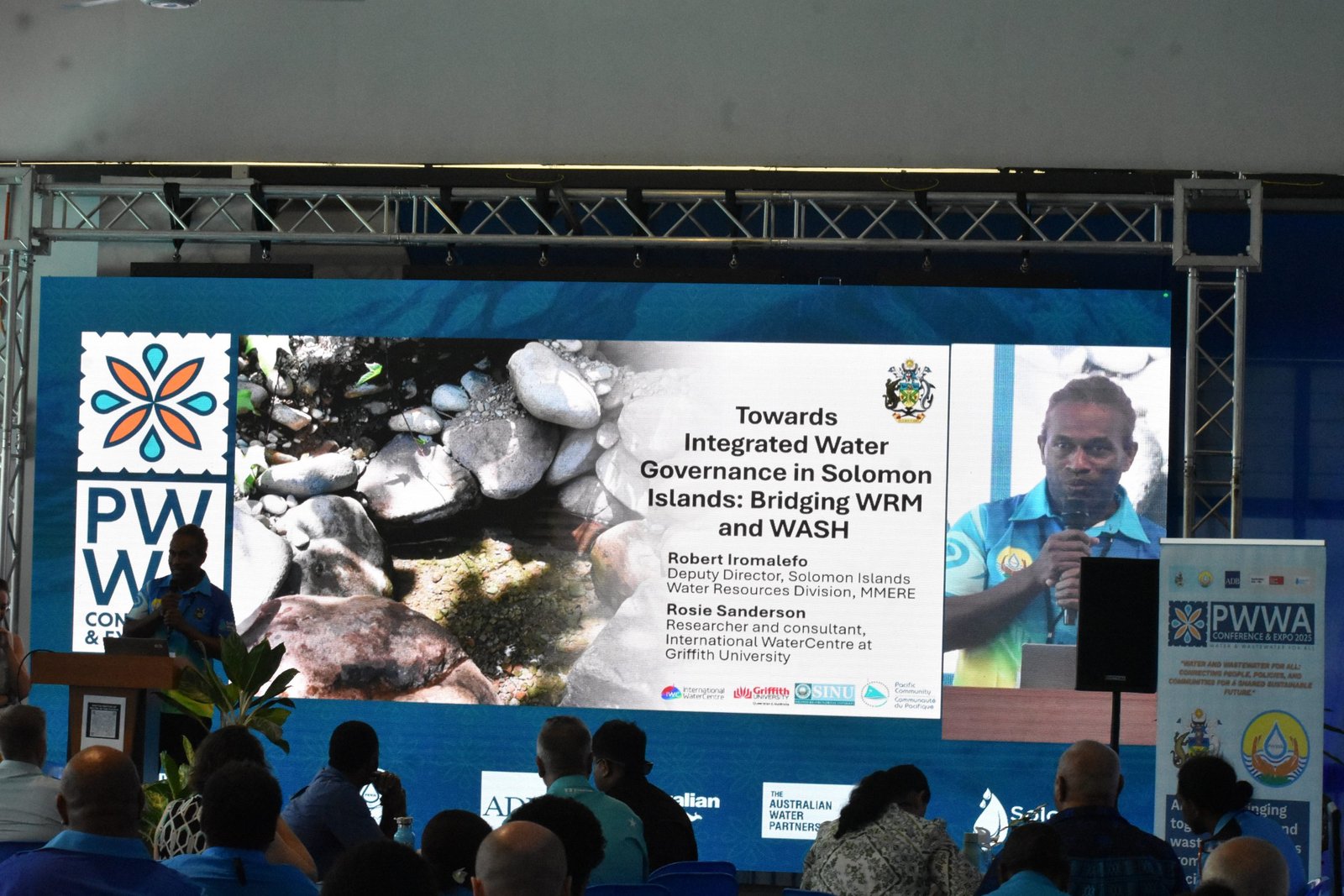
Access to Safe Water and Sanitation Remains a Challenge for Solomon Islands
By Alfred Pagepitu
Access to safe drinking water in Solomon Islands has declined, affecting both rural and urban communities.
Deputy Director of Water Resources in the Ministry of Mines, Energy and Rural Electrification , Robert Iromalefo revealed that basic access to drinking water has dropped from 69% to 59%.
He spoke about the issue during his presentation at the Young Water Professionals Session with Utilities CEOs at the 16th Pacific Water and Wastewater Association Conference and Expo 2025, held at the Aquatic Centre today.
“We are not properly channeling water for drinking. People still have to go out and collect water from the streams.”
” We need to cover the remaining 40% to ensure full accessibility,” Iromalefo said.
He explained that the decline highlights ongoing challenges in reaching communities across the country.
“Many people, especially in rural areas, still have to fetch water from streams, leaving a significant portion of the population without reliable access.”
“Accessibility really means we are not properly channeling water for drinking. People have to go out and fetch water from streams, so we are still far from reaching everyone. We need an additional 40% coverage to ensure all communities have access,” he added.
Mr. Iromalefo also highlighted that sanitation is a major concern, with almost 60% of people in Solomon Islands still practicing open defecation, underscoring the urgent need for better hygiene practices and facilities.
He noted that the country’s water and WaSH sector is fragmented and lacks coordination.
“SIWA and WaSH sector is busy, everybody is doing everything. We have the DFAT WaSH Project, other WaSH initiatives, legal reforms, but there is no coordination,” he said.
He stressed the need for integrated water management, pointing out that water supply, sanitation, and environmental health are closely linked.
“There is no integration yet. Safe water supply depends on healthy watersheds and groundwater.”
Poor sanitation contaminates rivers, streams, and aquifers. Climate change and extreme weather affect both water sources and service delivery.”
On the broader challenges, he explained that fragmentation in the sector leads to weak governance and missed opportunities.
“Many programs and reforms are happening simultaneously, but without coordination, we are not using resources effectively. We have missed a lot of opportunities to improve water and sanitation services.”
“At the national level, there is a package of reforms underway, including updated policies, legal frameworks, and improved management structures. These steps are critical to ensure better coordination, stronger governance, and climate-resilient water services for all communities,” he added.
[END]
